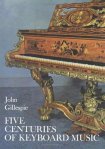
Fryderyk Chopin: A Life and Times [2018] – ★★★1/2
A comprehensive biography of Chopin, though also a tad over-written and insensitive.
This book on Polish composer Fryderyk Chopin is the culmination of a ten years’ research project. Fryderyk or Frédéric Chopin is considered to be the greatest composer of the Romantic period, and this biography details his life from his early education and success in native Poland to his move and conquest of Paris through salon appearances, concerts and published works. Much in this book is about Chopin’s long-term relationship with female French novelist George Sand, but Chopin’s musical masterpieces, technique and piano theories are also dissected. Walker employs an engaging story-format to tell us about Chopin, a composer who was also largely self-taught and perpetually ill, providing invaluable insights into Chopin’s relationships with others. And, this well-researched book would have been a “must-read” biography if not for the fact that it is also over-written, with the author making some insensitive faux pas as he proceeds with his over-zealous narration.
Continue reading “Review: Fryderyk Chopin by Alan Walker”













